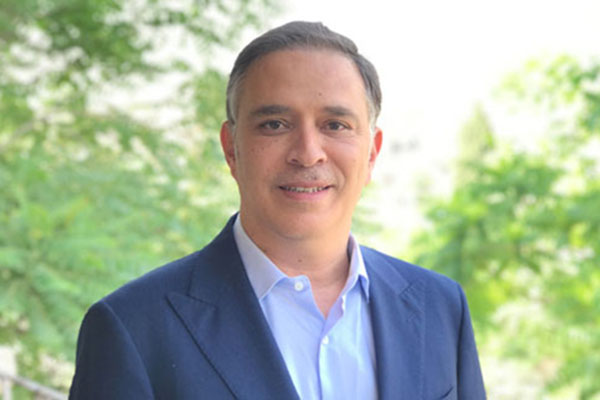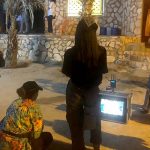Five producers and five directors from Jordan, Egypt, Iraq, Palestine, and Libya completed last week, at the Royal Film Commission (RFC) in Amman, a specialised film-training programme. These participants are members of the finalist teams selected to take part in Med Film Factory’s 6th cycle (MFF); an advanced training programme for filmmakers from the Arab […]
Five producers and five directors from Jordan, Egypt, Iraq, Palestine, and Libya completed last week, at the Royal Film Commission (RFC) in Amman, a specialised film-training programme.
These participants are members of the finalist teams selected to take part in Med Film Factory’s 6th cycle (MFF); an advanced training programme for filmmakers from the Arab World, initiated by the RFC in partnership with Sud Ecriture – Tunisia, and The Huston School of Film & Digital Media – Ireland, and Abdul Hameed Shoman Foundation- Jordan (AHSF) as a main Funder.
The directors and the producers of the five teams took part in MFF’s ten-day training scheme, which included script mentorship, creative and practical producing and a hands-on shooting exercise under the guidance of renowned mentors and experts, supported by skilled Jordanian cast and crew members, and with the generous support of Slate Film Services and Ala’a Njjar who provided the needed equipment for the shoots. Additionally, teams that successfully completed the programme will be invited to participate in regional and international film markets to meet with and pitch their projects to professionals and potential partners.
Med Film Factory’s Pedagogical Committee comprised Dora Bouchoucha (Sud Ecriture, Tunisia), Lina Chaabane (Sud Ecriture, Tunisia) and Rod Stoneman (Huston School of Film & Digital Media, Ireland).
Dora Bouchoucha indicated that “Med Film Factory is a pragmatic tailored mentoring program for pairs of Arab producer/director in need of companionship which has imposed itself as the promoter of today’s new Arab cinema.”
From Libya, Director Abdullah Al-Ghaly and Producer Miftah Saeid are teaming up to work on their film “El Bastardiya”. From Egypt, Director Muhammad Refaat and Producer Mohamed Rasheedy are teaming up to work on their film, “Stuck in My Name”. Director Ali Kareem Obaid from Iraq, and Producer Khalid Abu Sharif form Jordan, are teaming up to work on their film, “The Arabic Interpreter”. From Egypt, Director Mohamed Rashad and Producer Hala Lotfy are teaming up to work on their film, “The Hero”. Director Said Zagha from Palestine, and Producer Mais Salman from Jordan, are teaming up to work on their film, “Weedestine”.
Hala Lotfy, producer of “The Hero”, described the programme as “very ambitious, challenging filmmakers’ competencies within a limited period of time, and triggering questions in relation to their future projects and their professional career as a whole.
Commenting on the programme, Khalid Abu Sharif, producer of “The Arabic Interpreter”, said: “Med Film Factory is a unique programme that combines many important elements of filmmaking integral to professionals at this stage of their careers. The RFC team worked hard to provide amazing tutors and a great environment to advance our projects.”
Mohannad Al Bakri, Managing Director of the Royal Film Commission – Jordan added: “Since Med Film Factory’s creation six years ago, the RFC and its partners in the programme have witnessed the development and growth of 30 teams of Arab directors and producers. We are extremely proud of MFF alumni and their ability to complete their projects and share them with international audiences, harvesting, in many cases, first-class awards. For instance, “1982” by Oualid Mowaness, a project that went through MFF training a few years ago, is now touring some of the top film festivals worldwide. We are glad that five Arab projects took advantage of what this program offers in terms of its unique set up and hands-on exercises guided by professional mentors and experts enabling the participants to tell their stories in the most personal and meaningful way.”
Valentina Qussisiya, CEO of Abdul Hameed Shoman Foundation, emphasized the importance of supporting various types and forms of art at AHSF, highlighting the importance of popularizing cinema and film production and developing the capacities of those working in this field. She added that such training prorgrammes will contribute to making films with a realistic and poetic character as well as enrich the filmmaking environment in the Arab world. Qussisiya believes the Arab region needs cultural products that reflect the reality of our societies. Hence, we definitely need to develop filmmakers’ capacity by giving them the needed tools to speak to the world.











































































